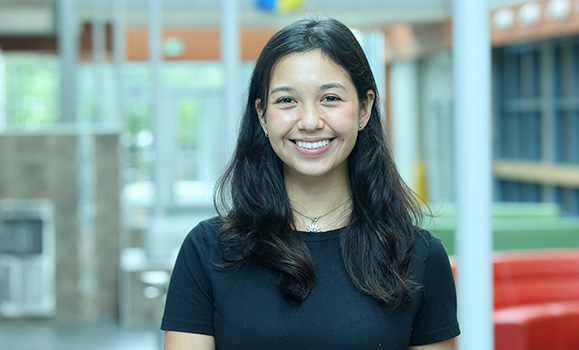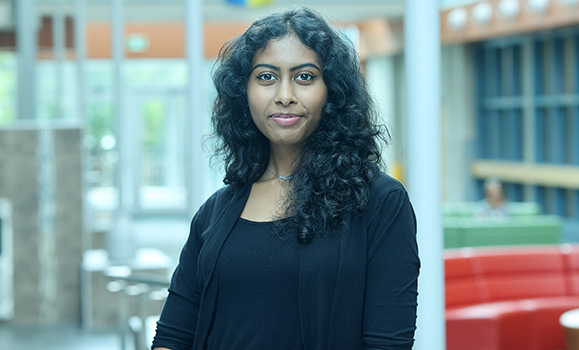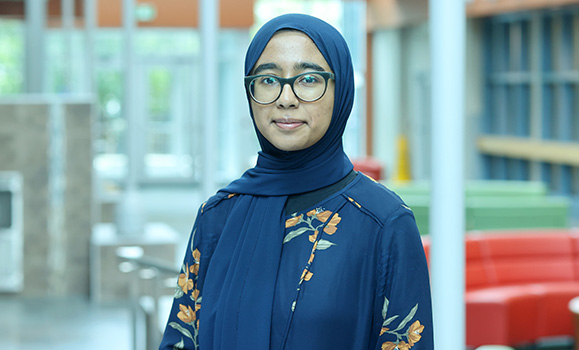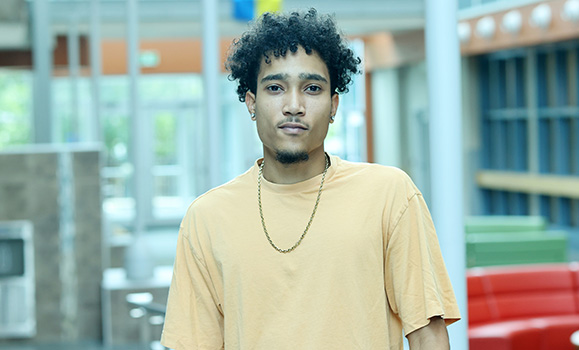Science communication is a critical skill, serving as a bridge between scientific research and the community. It impacts how we exchange knowledge, strengthens decision-making, and promotes a deeper understanding of the natural world.
At Dalhousie, the Faculty of Science continues to prioritize the importance of science communication, not only as a skill but as a valuable career opportunity for the next generation of scientists through the John Dingle Science Communication Internship program.
“The knowledge gained from the process of science is only useful if it is shared broadly with the public, in a way that is accessible and relatable,” says Dr. Leanne Stevens, associate dean academic (acting). “The ability to communicate science is a skill that is essential for our students regardless of their career paths — whether students are speaking to patients in a clinical setting, explaining the importance of their research to granting agencies or inspiring the next generation to pursue science — effective communication is key for community connection and engagement.”
Now in its third year, the 10-week summer internship — funded with generous support from the Dingle family — provides a unique opportunity to four undergraduate science students interested in exploring science communication.
This year, 70 science students applied to the internship. The four successful applicants were matched with units from the Dal Science community, including the Ocean Tracking Network, CREATE BioActives, the Department of Earth and Environmental Sciences and a new Medical Sciences initiative called Inclusive Pathways to Medical Professions (IPMP).
The internship also provides a rich experience for host units. “The internship helped us to reimagine how we might communicate the successes of the research training program and highlight the science and people achieving it,” says Nazanin Omidvar, CREATE BioActives program coordinator.
As a part of the internship, students participated in a week of training, exploring workshops in areas such as knowledge translation, digital marketing and written communications.
Hear what this year's interns had to say about the program:
Caliyena Brown - Ocean Tracking Network

“Without effective communication and knowledge translation, science would have a minor impact, whether that be in a scientific, academic, or casual setting. Throughout my academic career at Dalhousie, I have been able to practice this skill, which has helped me gain an appreciation for its significance within STEM fields. This internship provided the opportunity to write about science in a real-world setting and target a non-academic audience, allowing me to hone this skill outside of the classroom.”
Harshita Pasumarthi, CREATE BioActives

“Science communication has always had an immense impact on our society, where it aims to share science in a simple and effective manner for everyone to understand. Throughout this journey, I met with many amazing individuals in the Department of Chemistry and was able to highlight their work through a poster and social media spotlight series. This internship showed me how unique and creative science communication can be. I am excited to utilize the skills I developed to explore this field of science more in the future!”
Lamisa Rahman, Inclusive Pathways to Medical Professions (IPMP)

"During my time as an intern, I had the opportunity to improve my skills in written, oral, and visual communication through firsthand experiences and training. The internship has taught me the importance of science communication in bridging the gap between experts and the public to bring about tangible changes that positively impact our communities."
Adam Sykes, Department of Earth and Environmental Sciences

“I had the opportunity to learn about science communication and hone my video editing and recording skills through the creation of a community-based video series. It's been a privilege and an opportunity to interact with inspiring individuals from the Department of Earth and Environmental Sciences.”
The John Dingle Science Communication Internship will begin to accept student applications in early 2024. To learn more about this opportunity, please visit dal.ca/science.
Recommended reading How I spent my summer: Feeling at home in Germany
Comments
comments powered by Disqus

